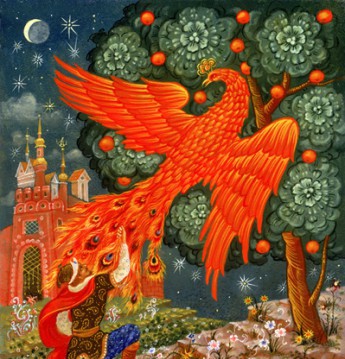One of the strongest inspirations for me in the creation of the world of Trinity is a fact I mentioned in my previous post: that not only does Russia have a long history of traditional magic, but that history continues to this day, with new strands added to it in more recent times. In the long centuries before the Bolshevik Revolution of 1917, pretty much every village had its resident koldun, sorcerer or wizard, and/or zhanarka, which literally means ‘one who knows’ but could be thought of as a witch. Magic in Russia has always been practised by both sexes, often in different ways–for instance, kolduns were thought to have the power of shapeshifting, while zhanarkas were more skilled in healing. These are not hard and fast rules–and female sorcerers and male healers certainly existed: but in an interesting contrast to the West, the female practitioners generally had a better reputation than the male–kolduns were often accused of unholy practices, and were thought to be damned. This feeling against kolduns and their malefic power was behind some of the popular revulsion against Rasputin, for instance. In contrast, even when they were feared, female witches were often thought to have a good aspect, with even Baba Yaga, the fearsome legendary witch of Russian folklore being seen as a protective figure in some instances–when she took a liking to you, that is! Her opposite number, the legendary wizard Koschei the Deathless, by way of contrast, had no redeeming features!
Some traditional practitioners of magic, male and female, also specialized in such things as divination, fortune-telling and the like, while in Siberia traditional shamans had a strong following. All classes of society frequented these various kinds of traditional occult practitioners, and from the late 19th century onwards, as well, there began to be interest in ‘Eastern’ philosophies and systems of magic coming from places such as India and China.
However, unlike in the West, for many centuries there was little really organized persecution of witches, whether male or female, though that did not mean individuals didn’t sometimes suffer. Part of the reason for the absence of witch-hunts is that belief in magic was so widespread that ordinary people knew and used a few spells themselves. And the Orthodox Church has always had an uneasy relationship to magic, with some clergy dead against it and many others much more ambiguous, with respect for ‘white’ or sympathetic magic still very common amongst believers, and ‘black’ or malefic magic much feared still. On occasion however the country’s rulers have tried to limit or punish the practice of magic. Continue reading


